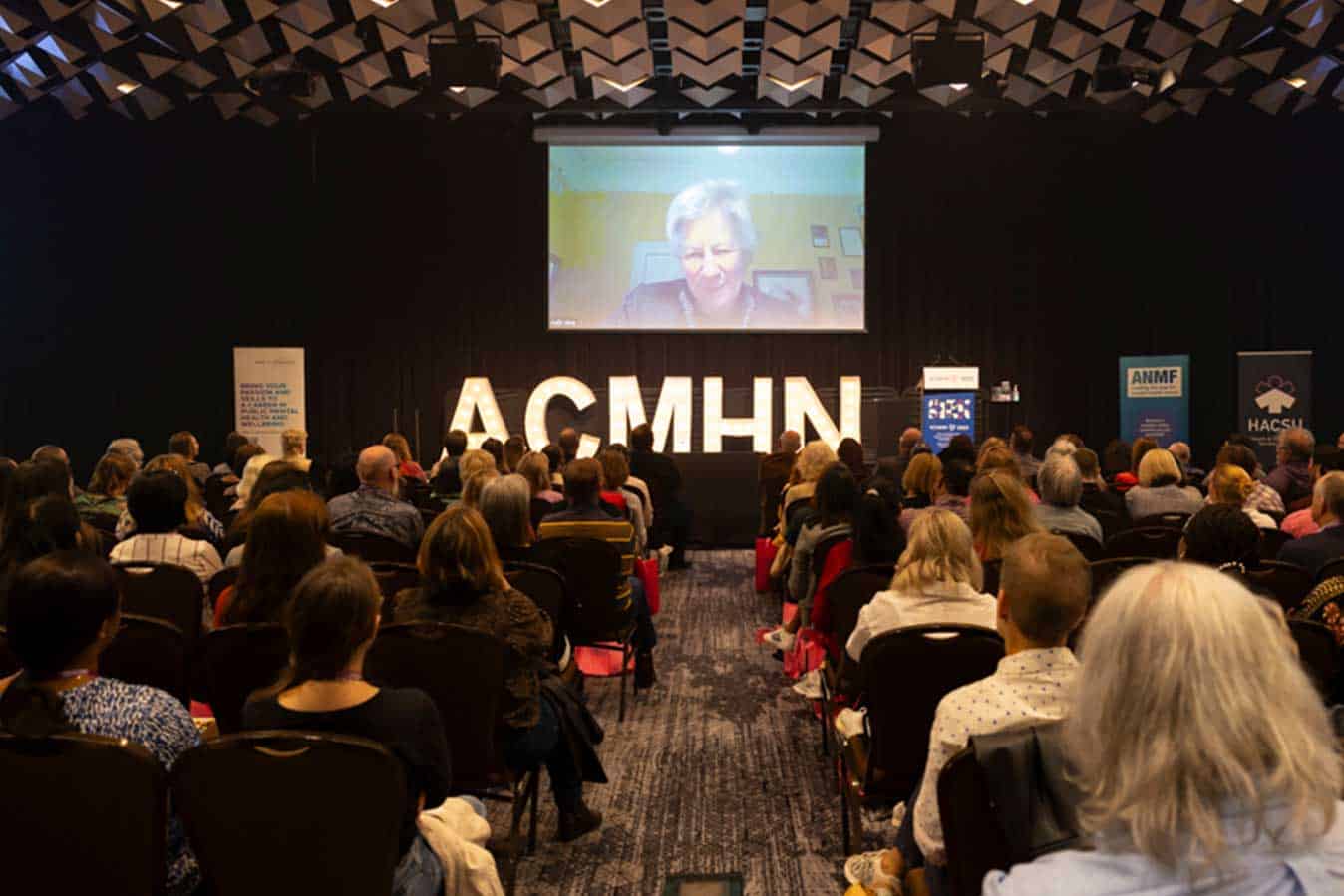Skilled and knowledgeable health professionals, mental health nurses possess a range of invaluable attributes including the ability to show great empathy, provide tailored patient-centred care, and respond and adapt to often complex situations. But Australia doesn’t have enough of them working in the system to their full scope of practice, and lacks new and innovative models of care, a leading expert has argued.
Speaking yesterday to about 600 delegates at the Australian College of Mental Health Nursing’s (ACMHN) 47th International Mental Health Nursing Conference, held in Melbourne, Dr Ruth Vine, Australian Deputy Chief Medical Officer (Mental Health) Interim CEO of the National Mental Health Commission, outlined major challenges the mental health nursing speciality faces as it strives to grow and realise its full potential.
A psychiatrist who has spent the past three decades working within mental health, Dr Vine said key mental health workforce issues revolve around supply, distribution, and scope of practice. According to 2019 data, Australia has a 32% shortage of mental health workers, she told delegates.
“Often, the availability of trained and skilled mental health nurses is a rate-limiting step to expanding services, to opening beds, to developing new models, and we know that really is a challenge,” Dr Vine said.
“Therein lies the problem. There’s general agreement that we should have expanded scopes of practice. That we should have new models of care. But also that core roles are continued and core roles are supported.”
Dr Vine pointed to mental health nursing being among six professions identified in the National Mental Health and Suicide Prevention Agreement, a shared commitment between Commonwealth, state and territory governments to improve mental health and reduce the suicide rate, which calls for action to address critical workforce shortages. Further, a National Mental Health Workforce Strategy will soon be released.
Fully recognising the workforce challenges mental health faces and what needs to done, Dr Vine said the federal government took meaningful steps towards greater investment and initiatives in its recent May Budget. Funding included expansion of the Mental Health Nursing and Allied Health Scholarship Program, aimed at supporting nurses and allied health professionals to enter the mental health workforce and upskill existing mental health practitioners, as well as 660 supervised nursing and allied health student mental health placements under the National Mental Health Pathways to Practice Program.

Credit: Melissa Hobbs
Looking to the future, Dr Vine said numerous other ideas for reform were up for consideration, including tighter scope of practice, growth of nurse practitioner areas, and increased involvement in primary care and private community models. Reform of programs like Better Access to improve equity, effectiveness and appropriate use of high intensity and lower intensity services/workforce is another topic on the agenda.
“Many areas are under consideration, not just mental health nursing, but [I think we need to] recognise the criticality of including mental health nursing in new models of care, in expanded scopes of practice, and their value across the spectrum,” Dr Vine said.
“That’s going to include some of those lower intensity models that are digitally-based, text-based, and other services as well as the community-based services like the headspace centres…but right through of course to the need for more community outreach provided by both the public and private sector.”
Dr Vine suggested the potential of mental health nurses had been ‘unleashed’ in some areas, yet, still had a long way to go.
Having spent her career in public mental health, she argued the system has an image problem, including tensions between providing access to treatment and safe care, avoidable incidents of occupational violence, and growing consumer choice and autonomy.
“I still believe there is a real denial, and even a misunderstanding, of the impact of severe mental illness and its presentation and, unfortunately, I think both psychiatrists and mental health nurses get caught up in this denial and misunderstanding, which makes mental health even more challenging.”
Dr Vine told delegates that throughout her career, it had at times felt that those who most wanted treatment and care, perhaps needed it the least, and could have accessed other forms of lower-intensity supports. Conversely, people who likely really need treatment and care, often try extremely hard to avoid it, and everything that comes with it.
She said it’s a big reason why working in mental health is so challenging, especially from an ethical, legal, and professional perspective.
Amid the recent Royal Commission into Victoria’s Mental Health System, and emerging reform, such as a new Mental Health and Wellbeing Act, Dr Vine said the system was in a state of considerable change.
Above all, she stressed “great nursing care” is the backbone of the system, and that the workforce must now attain proper investment and support. Attracting nurses to work in mental health, and keeping them there, is paramount.
“There are a whole lot of different [challenges] to do with the system around funding and around workforce allocation and trying to avoid those problems that seem to be with us for the longer term such as fragmentation, unclear governments, and different workforce pressures.”








